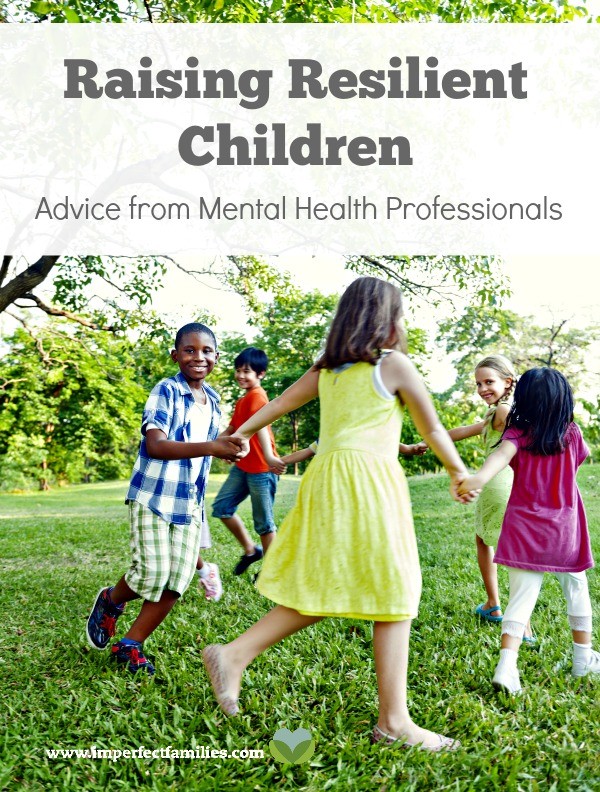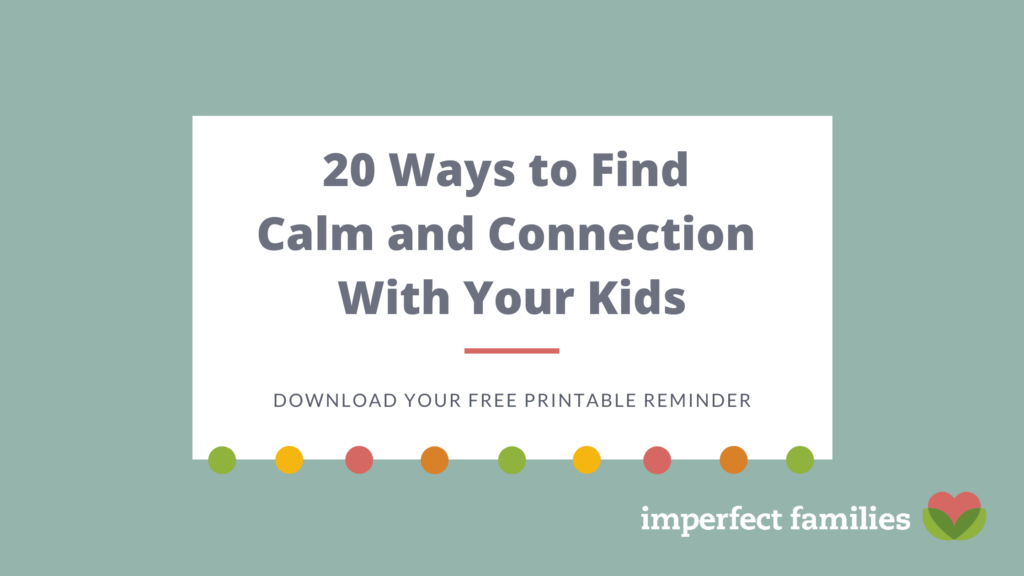Resilient children don’t avoid challenges. They don’t escape failure. They still experience heartbreak, conflict and uncertainty. What sets resilient children apart from their peers is that they have skills to help them manage anxiety, feel calm and confident instead of stressed, and try again instead of giving up.
Your child is going to struggle. He is going to worry about a big project. She is going to experience drama with friendships. Learn how to raise a resilient child by reading through these posts from Mental Health Professionals around the world. The articles cover a variety of topics and offer a wide range of tips and strategies, both for your child and for you as a parent or caregiver.

Raising Resilient Children:
Resources for Parents from Mental Health Professionals
Building Resilience in Children – Debbi Carberry, Accredited Mental Health Social Worker (Australia), Debbi Carberry
Children who are not resilient have higher risks of mental health disorders and behavioural problems. There is also emerging evidence to suggest that young people who are resilient are more likely to achieve school success, both academically and personally.
Teach Your Child How to Fight Anxiety – Natasha Daniels, LCSW, Parenting Anxious Toddlers
Teach your Child How to Fight Anxiety….and be a Super Hero!
Teaching your child how to fight anxiety can start at a very young age. I have worked with children as young as two and three that were able to learn skills on how to face their fears. So, roll up your sleeves and start arming your child with skills to overcome their anxiety. It is never too early to turn your little one into a superhero!
Anxious Parents Raising Calm Children: It CAN Be Done! – Elizabeth Singer, Licensed Psychoanalyst, Union Square Counseling
What if Dad just returned from Iraq and the street noise puts his nervous system on high alert? The baby doesn’t learn to calm down, she learns to be afraid. Instead of regulating stress in a downward spiral toward calm, the baby’s nervous system spirals up towards fear. This is the genesis of an anxiety disorder. Learn what to do next!
Building Resilience in Children Through Humor – Ashley Soderlund, Ph.D. Developmental Psychology, Nurture and Thrive
We cannot always protect our children from experiencing stress and distress, but we can help them to develop skills to be able to handle those moments well, grow in the face of challenge, and continue on, perhaps not untouched but hopefully undamaged. But how does humor help to do this and how can we help our children develop their own healthy sense of humor?
How to Help Your Cautious Child Feel Confident – Nicole Schwarz, LMFT, Imperfect Families
The goal is not to change who our child is or force them to be something they are not. Instead, we want to equip them to accomplish challenging tasks, initiate conversations and take appropriate risks that will enrich their lives. We don’t want our kids to live in fear, but to encourage them to see other options and possibilities. We want them to feel confident!
Resources to Teach Mindfulness for Kids – Janine Halloran, M.A., LMHC, Encourage Play
Mindfulness can be a helpful tool for kids who have challenges with self-regulation or difficulty managing emotions, or want to improve their concentration. It would be helpful for them to be able to calm down and be aware of the present. When they are aware of the present, it will help them be more able to see what’s happening around them and settle themselves and their minds. What a great way to raise a resilient child!
Stress in Children – Making Big Problems Small and Small Resources Big – Nicole Weeks, PhD/Masters, Practical Research Parenting
When a child feels upset, angry, frustrated, or scared, our response to that emotion transmits an important message. Our response effectively communicates how to think about and deal with problems that are stressful. As children grow, so do their responsibilities and pressures. Learning to face up to these responsibilities and pressures is a valuable skill.
Practicing Calm is Like Taking Vitamins” Series, Part 1: 3 Simple Tips for Young Children – Maya Benattar, MA, MT-BC, LCAT, Music Therapist
Stress management and self-regulation have been coming up a lot lately in my sessions, both with kids and adults. A great metaphor that I’ve stumbled on is that practicing calm is like taking vitamins. This counteracts the often-popular idea that you don’t need to practice calming yourself and/or stress management (whether that’s deep breathing, meditation, mindfulness, or something else) if you’re feeling good.
Why Resilient Children Need to Fail – Chantal Kayem, Psychologist, The Parenting Psychologist
There is an increased tendency for parents to rescue their children from life’s inevitable adversity, from their child either failing, having negative feelings, facing an insurmountable challenge or experiencing the consequence of their bad choices. Are children really better off not experiencing these?
10 Tips for Healthy iPad Use for Kids and their Parents – Jodie Gale, MA Psychotherapy, Jodie Gale Counseling
With the arrival of millions of iPads and other screen based devices in Christmas stockings all over the globe and reports of children as young as four struggling with iPad addiction – here are my top attachment focused parenting tips for healthy iPad use.
Does your child tattle tale? How to help your child learn to problem-solve and manage difficult social situations – Julie Safranski, LCSW, Juliesafanski.com
We want kids to learn how manage their own conflicts if there isn’t any harm involved. Why is this important? It helps kids to feel competent and successful. We don’t want to send the message that they always need someone else to help them deal with their problems. It also teaches kids that conflict is part of life and not everybody gets along.
Resilience in Military Children – Candy Papke, LPC, Purposeful Bliss
April was the month of the military child and it’s important to recognize the amount of resilience that military children develop at a young age. I am fortunate to be able to witness that resiliency in my own children.
Learning to Dance in the Storm of Divorce – Renee Bond, MS, AT, LPCC, Parenthood Prep
How can parents join parenting forces while going through a divorce? I’m not saying it’s an easy dance but because you care deeply about the health and wellbeing of your child you’re going to learn the steps. If raising resilient children is important for both of you, read on.
3 Ways to Reduce Parent Shaming – Mercedes Samudio, LCSW, The Parenting Skill
Parent shaming hurts families because we take away the parent’s power and instead tell them to do what society’s every changing ideals believes to be right or wrong. So, how do we decrease the pain families feel when parents need more effective strategies but are too ashamed and scared of ridicule to ask for help?
Does My Child Need Therapy – Steph Meyers, LCPC, Steph Meyers Counseling
My friends and clients often ask, “How do I know if my child needs help?” For many reasons it is difficult to navigate this territory. Let’s face it, it’s a crap sandwich and nobody wants a bite of that. Forcing ourselves to recognize that our kid is struggling is something people naturally have trouble accepting. Nobody wants their kid to suffer.
Kids Are Resilient, Right – Laura Reagan, LCSW-C, Connect With Your True Self
Conventional wisdom holds that children are resilient, and they bounce back easily from childhood experiences by the time they reach adulthood. This is considered to be even more true if the child doesn’t remember the events. A large study has de-bunked that myth. Read on!
Redefining Intimacy After Children – Rebecca Wong, LCSW, Connectfulness Counseling
Intimacy within a parent couple is the root from which the family’s resilience grows. Intimacy begins with how we tend to ourselves, each other… and then ripples out towards our children and our greater community.
The first week of May is National Children’s Mental Health Awareness week in America. Many parents stay quiet about their child’s mental health challenges. This may lead to feeling overwhelmed, isolated and unsure. Staying silent may even prevent parents and children from getting the support and services they need to succeed. This resource is an effort to bring attention to the prevalence of children’s mental health challenges and to encourage parents to speak up, seek help and support each other on their child’s journey to wellness.


